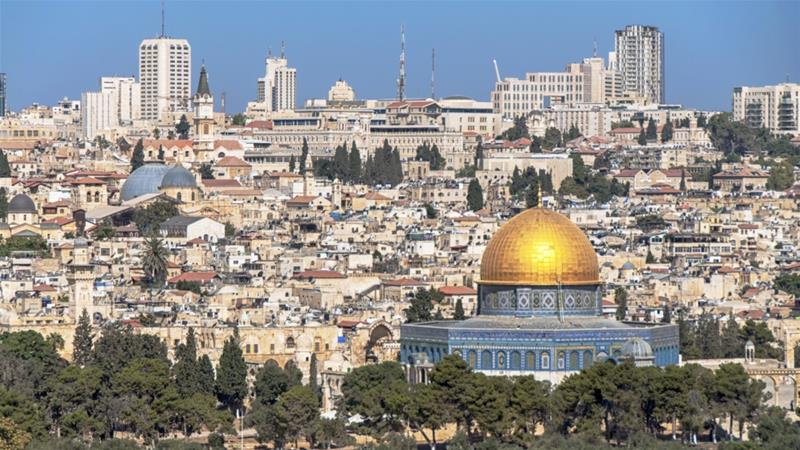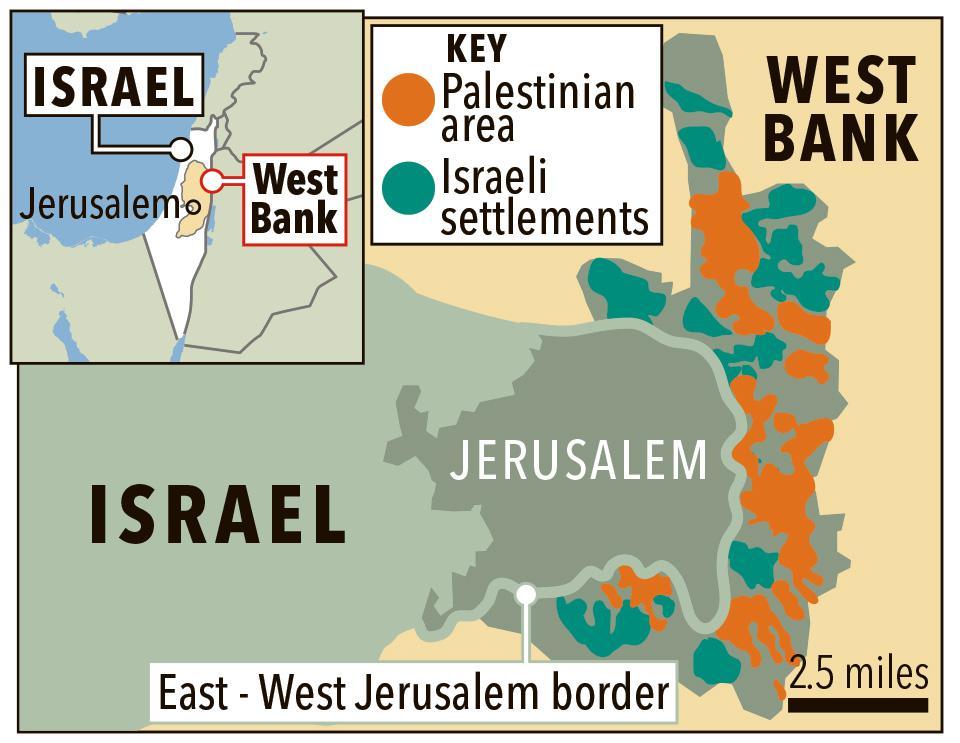Australia recognises West Jerusalem as Israel’s capital
December 16, 2018 | Expert Insights

Australia has decided to formally recognise West Jerusalem as Israel’s capital but won't move its embassy or recognize East Jerusalem as Palestinian capital until there is a peace settlement between Israel and Palestine. The country will establish a defence and trade office in Jerusalem.
Background
The status of Jerusalem is one of the most contested issues between Israel and the Palestinians. Both Israel and the Palestinians claim Jerusalem as their capital. Israel captured Arab East Jerusalem in the 1967 Six Day War and later annexed it. Israel considers east Jerusalem an indivisible part of its capital, while the Palestinians seek the area, home to the city's most sensitive holy sites, as the capital of a future state. For decades the international community maintained that the city’s status should be negotiated between Israel and the Palestinians. According to the 1993 Israel-Palestinian peace accords, the final status of Jerusalem is meant to be discussed in the latter stages of peace talks. Since 1967, Israel has built a dozen settlements, home to about 200,000 Jews, in East Jerusalem. These are considered illegal under international law, though Israel disputes this.
On December 6, 2017, US President Donald Trump announced the United States recognition of Jerusalem as the capital of Israel and ordered the planning of the relocation of the U.S. Embassy in Israel from Tel Aviv to Jerusalem. The UN member states voted decisively at the General Assembly in favour of a resolution effectively declaring US recognition of Jerusalem as Israel's capital to be "null and void" and demanding it is cancelled.

Analysis
Australian Prime Minister Scott Morrison has confirmed that his government will recognise West Jerusalem as the capital of Israel but won’t move the embassy from Tel Aviv until a peace settlement is achieved between Israel and Palestine.
"Australia now recognises West Jerusalem, being the seat of the Knesset and many of the institutions of government, is the capital of Israel," said Mr. Morrison. "We look forward to moving our embassy to West Jerusalem when practical... and after final status determination." Morrison added that Australia also recognised the aspirations of the Palestinians to a state with a capital in East Jerusalem. He said that in the interim Australia would set up a defence and trade office in West Jerusalem. The prime minister also stressed that Australia was supporting "liberal democracy" in the Middle East.
When the policy review was announced in October, it drew support from Israel, but criticism from the Palestinian side. Morrison said the decision respects both a commitment to a two-state solution and longstanding respect for relevant UN Security Council resolutions. Previously, Morrison had accused the United Nations of antisemitism, saying: “We regard the biased and unfair targeting of Israel in the UN general assembly in particular, as deeply unhelpful to efforts to build peace and stability. The UN general assembly is now the place where Israel is bullied and where antisemitism is cloaked in the language of human rights.”
Mr. Morrison had earlier floated the idea that Australia may follow the contentious US move of relocating its embassy to Jerusalem from Tel Aviv, but it was seen by many Australians as a political stunt. Morrison who is an evangelical Christian faced question about whether his religious views had played a part in his decision to float the proposal. “My faith and religion has nothing to do with this decision,” he said.
The consideration had sparked a backlash from Muslim-majority Indonesia and Malaysia, threatening a free trade deal which has now been delayed. Opposition leader Bill Shorten said that the decision to recognize West Jerusalem as Israel’s capital but not move the embassy there was a "humiliating backdown" from the October by-election campaign. "What I’m worried is that Mr. Morrison put his political interest ahead of our national interest," Shorten said. Palestinian leaders are pressing Arab and other Muslim states to drop Australian exports and withdraw their ambassadors from Canberra in the event of an embassy move to Jerusalem.
US President Donald Trump drew international criticism when he reversed decades of American foreign policy by recognising the ancient city as Israel's capital. The US embassy was relocated from Tel Aviv to Jerusalem in May of 2018. Following the United States, Guatemala & Paraguay officially moved its country’s embassy to Jerusalem. Brazil and the Czech Republic have also announced their intention to relocate their embassy to Jerusalem.
Assessment
Our assessment is that recognizing Jerusalem is expected to help the Australian Prime Minister who faces the prospect of an election with Jewish and conservative Christian voters next year. Prime Minister Morrison’s policies go hand in hand with the current policies of White House. We feel that this move is likely to advance national interests and enhance the relationship among the US and Israel.








Comments